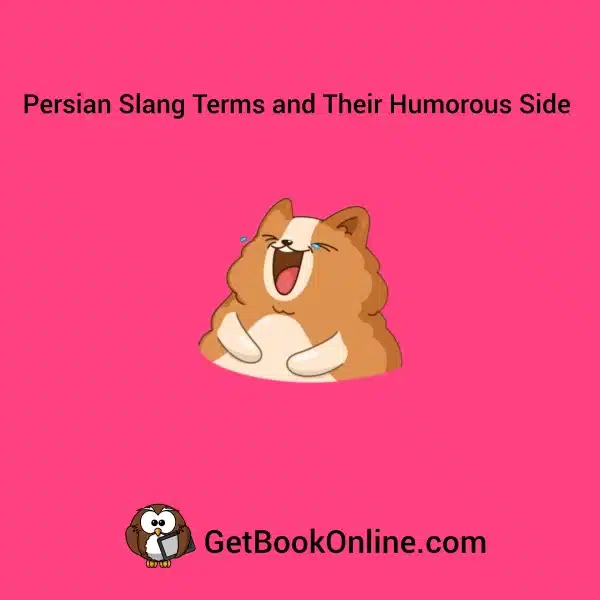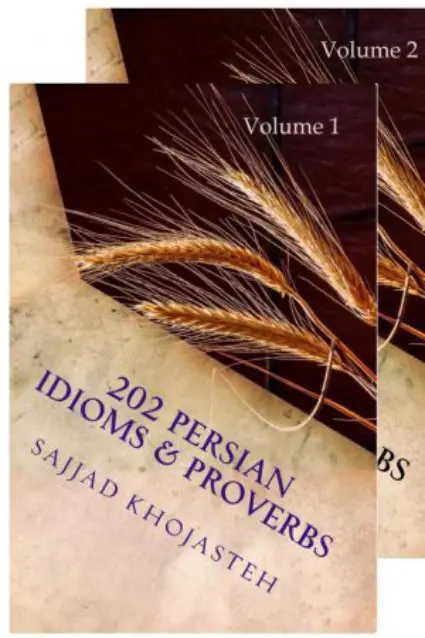Update Date: July 27, 2024

How familiar are you with Persian slang and its unique expressions? Have you ever wondered about the colorful and humorous side of the Persian language? Are you curious to explore the funny and intriguing world of Persian slang words, which add a touch of humor to everyday conversations?
In Persian, slang adds an exciting and amusing touch to everyday conversations. This article will take you through commonly used Persian slang and its meanings. We will also explore the influence of Persian slang in English-speaking communities and the humorous and entertaining side of Persian slangs.
Get ready to chuckle as we dive into funny and comical Persian slang. From witty expressions to clever wordplay, you will discover the lightheartedness embedded in Persian conversations. Additionally, we will explore the origins of Persian slang by delving into the ancestral treasure trove of old Persian sayings. These sayings have shaped the modern expressions that bring color to the Persian language.
This article will take you on a journey to explore the lively and captivating realm of Persian slang words and expressions. So, if you want to learn new Persian slangs keep reading to learn and laugh. Are you ready?
So, get ready to embark on an exciting journey through Persian slang. Whether you want to impress your Persian friends or expand your linguistic knowledge, this article will be your gateway to Persian slang’s colorful and captivating realm. Stay tuned for an adventure of laughter, creativity, and linguistic flair.
The Significance of Slang in Language Usage
Let’s begin with a brief introduction to the Persian language. Persian, also known as Farsi, is the official language of Iran and is spoken by millions worldwide. It has a rich history dating back thousands of years, and its unique characteristics make it a fascinating language to delve into.
What exactly is slang, and why is it significant in language usage? Slang refers to informal, unconventional words or phrases commonly used in everyday conversations. It adds flavor, playfulness, and cultural context to language, allowing people to connect and express themselves in a more expressive and relatable way.
Exploring Persian Slang
Enter the world of Persian slang! Prepare to be amazed by the vibrant and diverse range of words and phrases used by native speakers. From casual conversations to social media interactions, Persian slang words bring a sense of humor, authenticity, and camaraderie among speakers.
In this article, we will explore various aspects of Persian slang. First, we will uncover the meanings behind popular Persian slang and the cultural references that make them significant. Second, help you brace yourself for some laughs as we dive into funny Persian slang that will make you smile.
But it’s not all about humor; Persian slang also encompasses cool and stylish words that have become trendy among the younger generation. So, we will highlight some cool Persian words that add an edge to everyday conversations.
Moreover, Persian is known for its poetic and beautiful expressions. We will reveal some of the most enchanting Persian slang words that captivate listeners and evoke a sense of admiration.
Lastly, we will touch upon Farsi slang words, exploring their usage in informal settings and differentiating them from formal Farsi language. By understanding Farsi slang, you will gain a deeper insight into the language and connect with native speakers more naturally.

sooti dadan – سوتی دادن
One popular Persian slang phrase is “sooti dadan, “meaning “making a goof.” This phrase is used when someone unintentionally does something silly or makes a mistake, often resulting in laughter. For example, if you accidentally reveal a secret at a party, your friends might tease you by saying, “Sooti dadi!”.
lājoon- لاجون
In Persian slang, “لاجون” (pronounced “lajoon”) is a term used to describe a very skinny person. It combines “لا” (which can imply something lacking or less) with “جون” (a colloquial term for body or physique), to convey a somewhat humorous or teasing characterization of someone’s thinness. The word often carries a playful or light-hearted tone rather than a purely negative one, reflecting cultural nuances in how physical appearance is discussed among friends or acquaintances.
While it may be used affectionately or to gently tease, context is crucial, as it could potentially be interpreted as insensitive or offensive if used inappropriately. This slang highlights how Persian language and culture often blend humor with social commentary, offering a unique perspective on body image through informal expressions.
ghorboonet beram- قربونت برم
Another endearing phrase is “ghorboonet beram” meaning “I will die for you.” This expression is used to express extreme affection or loyalty towards someone. It’s a heartfelt way to show that you care deeply about someone and are willing to go to great lengths for them.
zabān derāz- زبان دراز
In Persian slang, “زبان دراز” (pronounced “zaban deraz”) refers to someone who responds to impolite or provocative questions and comments without hesitation, often in a blunt or rude manner. This term characterizes individuals who are quick to defend themselves or others, sometimes crossing the line into rudeness.
Such people are known for their readiness to engage in verbal confrontations or disputes, not shying away from controversial or uncomfortable topics. The expression can carry a negative connotation, implying that the person’s outspoken nature might be perceived as abrasive or lacking in tact.
kerm rikhtan- کرم ریختن
If you want to mess with someone in a harmless way playfully, you can use the slang phrase “kerm rikhtan”. It’s like teasing or joking around with someone, often in a light-hearted manner. For instance, if you playfully hide your friend’s keys and they start searching for them, you can say, “Kerm rikhtam.”
nachasb- نچسب
In Persian slang, “نچسب” (pronounced as “nachasb”) refers to someone who is aloof, detached, or uninterested in social interactions. It describes a person who tends to keep to themselves, often perceived as distant or not easily approachable. The term can imply a lack of enthusiasm or reluctance to engage in conversations or activities with others, giving off an air of disinterest or detachment.
In social contexts, being labeled as “نچسب” might suggest that one prefers solitude over company, or simply isn’t actively seeking social interactions. It’s a nuanced descriptor often used in informal settings among friends or peers to characterize someone’s demeanor or behavior towards socializing.
khepel- خپل
In Persian slang, “خپل” (pronounced “khepel”) is a term used affectionately to describe a person who is endearingly chubby or plump. The word carries a positive connotation, often implying a sense of cuteness or charm. It’s used in informal settings and among friends to express fondness or admiration for someone’s physical appearance, particularly if they have a rounder or more robust figure.
Unlike some terms that might carry negative implications, “خپل” is typically used in a lighthearted and loving manner. It reflects a cultural appreciation for body types that are considered cuddly or lovable, showing how Persian slang can infuse affection into descriptions of physical attributes. This usage highlights how Persian language and slang often blend physical description with emotional warmth.
sare kār gozāshtan- سر کار گذاشتن
When you want to pull someone’s leg, you can say, “sare kar gozashtan.” This phrase means to play a practical joke or trick on someone, usually in a friendly and humorous way. So, it’s a way to keep the atmosphere light and have a good laugh together.
khāli bastan- خالی بستن
Another interesting slang phrase is “khali bastan,” which translates to “bluff and exaggerate.” This phrase is used when someone tells a story or makes a clearly exaggerated or embellished claim. It’s like saying someone is stretching the truth. For example, if someone brags about catching a fish as big as a whale, you can say, “Khali naband!”.
manghali- منقلی
In Persian slang, “منقلی” (pronounced as “mangoli”) is used to describe someone who is highly addicted or excessively obsessed with something, often in a negative sense. The term originates from the word “منقل” (mangal), which refers to a portable charcoal grill. The slang draws an analogy to how someone might be so consumed by their obsession that it resembles the way a grill is always in use.
damet garm- دمت گرم
Now, let’s talk about a few more Persian slang words that are commonly used. For example, when you want to say “good job” or “well done,” you can use the phrase “damet garm.” It’s a way to acknowledge someone’s efforts and achievements.
daste gol be āb dādan- دسته گل به آب دادن
If someone is ruining a task they were supposed to do, you can say, “daste gol be ab dadan.” It means that they messed up something that they were entrusted to do. It’s like saying someone dropped the ball or messed things up. So, for instance, if your friend was in charge of organizing a party but didn’t do a good job, you can say, “Daste gol be ab dadi!”.
jigare mani- جیگر منی
Lastly, if someone is very dear to you, you can use the phrase “jigare mani,” which means “you are my liver.” It’s an endearing way to express love or affection towards someone. It’s like saying he/she holds a special place in your heart.
Persian slang words add a touch of humor, emotion, and cultural depth to conversations. They reflect the creativity and wit of the Persian language, making interactions more vibrant and livelier. So, the next time you converse with a Persian speaker, try incorporating some slang words and enjoy the playful and meaningful connections they create.
gholombeh- قلمبه
In Persian slang, “قلمبه” (pronounced as “gholombe”) is a term used to describe someone who is amusingly plump and endearing. It combines the notions of being chubby with a charming, often humorous personality. The word carries a light-hearted and affectionate connotation, portraying the person as both funny and cute despite their larger size. It reflects a playful attitude towards body image and emphasizes the person’s lovable nature rather than focusing on negative aspects.
In social contexts, calling someone “قلمبه” suggests that they bring joy and amusement to those around them, and their physical appearance adds to their overall appeal in a delightful way. This Persian slang term is typically used in a friendly and positive manner to celebrate someone’s endearing qualities.
joon- جوون
One example of popular Persian slang that has gained popularity in English-speaking communities is “joon,” which translates to “dear” or “darling.” This endearing term is often used as an expression of affection towards loved ones or even as a friendly gesture. Its simplicity and warmth have made it a beloved addition to the English language.
golābi- گلابی
In Persian slang, “گلابی” (pronounced as “golabi”) is a term used to describe someone who is perceived as foolish or easily deceived. The word literally means “pear,” but in this context, it metaphorically refers to a person who is easily tricked or lacks common sense. The slang usage implies that the individual can be easily manipulated or fooled due to their gullibility or lack of judgment.
This term is often used in a casual or somewhat derogatory manner to highlight someone’s susceptibility to being misled or taken advantage of. It’s important to use this term with caution, as it can be offensive if directed at someone who may not appreciate being called out for their perceived naivety or lack of discernment.
bā namak- بانمک
Let’s start by compiling some funny and humorous Persian slang words and phrases. One popular example is “Ba Namak,” which translates to “witty” in English. This term is used to describe someone who has a clever and quick sense of humor. Imagine conversing with a friend who constantly comes up with hilarious remarks – that’s a perfect example of “Ba Namak.”
zahreh mār- زهرمار
Another funny slang term is “Zahreh Mar” meaning “snake venom,” this phrase is used metaphorically to describe something bitter. But it doesn’t stop there! Iranians also use “Zahreh Mar” to express anger or frustration. So, if you find yourself in a situation where you want to convey your annoyance, say “Zahreh Mar” and watch people around you burst into laughter.
pedar sookhteh- پدر سوخته
The term “Pedar Sokhteh” describes someone mischievous or wicked. But what makes it particularly funny is the literal translation: “burnt father.” It’s a prime example of Persian slang’s creative and unexpected nature.
These funny Persian slangs not only add spice to conversations but also reflect the creativity and playfulness of the Persian language. They serve as a linguistic expression, allowing Iranians to convey emotions and ideas distinctly and entertainingly.
Old Persian Sayings
Traditional sayings and idioms hold a special place in the rich tapestry of the Persian language. These old Persian sayings have survived the test of time and influenced the formation of modern Persian slang expressions. We at GetBookOnline Team will help you explore the fascinating connection between these ancient sayings and the vibrant world of Persian slang.
If you are interested in familiarizing yourself with more Persian idioms, you can explore the book “202 Persian Idioms and Proverbs” on our website. This book showcases the most common Persian idioms, serves as a source of Persian idioms, and provides guidance on when and where to use them. It is particularly beneficial for advanced Farsi learners looking to enhance their understanding and usage of Persian idioms.
Shaping Modern Persian Slang
Old Persian sayings, with their deep cultural and historical roots, have significantly shaped the evolution of Persian slang. These sayings often encapsulate wisdom, life experiences, and the collective knowledge of generations. Over time, specific phrases from these sayings have seeped into everyday conversations, lending a touch of charm, wit, and depth to modern Persian slang.
Examples of Old Persian Sayings
“Morghe hamsaye ghaze” translated to “The Neighbour’s chicken is a goose” refers to someone who exaggerates the value or importance of something. It is often used humorously to highlight the tendency to overstate things.
“Mage pool alafe kherse” translated to “Why, is money just leaves to a bear?” implies that money holds great value and significance and cannot be equated to something as trivial as leaves. Instead, it emphasizes the importance of wealth and its role in society.
Understanding the Significance
Old Persian sayings provide insights into the past’s cultural values, beliefs, and experiences. By incorporating these sayings into modern slang, speakers infuse conversations with a sense of tradition and keep their ancestors’ wisdom alive.
By exploring the ancestry of Persian slang, we gain a deeper appreciation for the language and its connection to the past. So, the next time you hear a Persian slang word, remember that it may have its roots in a saying passed down through generations, carrying the essence of Persian culture.
Make Your Conversations Funny by Employing Persian Slang
Whether you are a language enthusiast or intrigued by the beauty of language, understanding the significance of Persian slang words will enhance your appreciation for this rich and diverse culture.
This exploration will open doors to a new world of linguistic creativity, from the most common Persian phrases to the hidden meanings behind Farsi words. As you see, the exciting world of the Persian language is loaded with various slang which applies to specific situations.
If you need help using Persian slang, please feel free to contact us; our mission is to help you speak like a native. So, join our professional teachers and enjoy the treasure of the Persian language.
Frequently Asked Questions
What Is Persian Slang?
Persian slang refers to informal and non-standard vocabulary, expressions, and phrases used by native speakers of the Persian language in casual and everyday conversations. It adds flavor, humor, and cultural context to the language.
Why Is Persian Slang Essential?
Persian slang allows for a deeper understanding and immersion into Persian culture. It helps learners and enthusiasts connect with native speakers on a more personal level and grasp the nuances of informal communication.
How Is Persian Slang Different from Formal Persian?
Persian slang differs from formal Persian in terms of vocabulary, grammar, pronunciation, and usage. It often includes borrowed words from other languages, creative wordplay, abbreviations, and culturally specific references.
Where Can I Encounter Persian Slang?
Persian slang is commonly used in spoken conversations among friends, movies, TV shows, music, and social media platforms. It reflects the current trends, youth culture, and evolving linguistic expressions in Persian-speaking communities.
Can Persian Slang Be Offensive?
Some Persian slang expressions may carry offensive or vulgar connotations. Understanding the context and relationship between speakers before using or interpreting slang terms is important. Therefore, it’s best to exercise caution and respect cultural sensitivities when using Persian slang.
